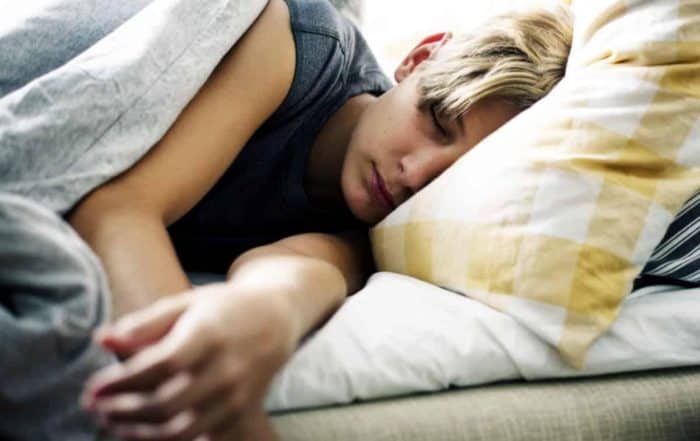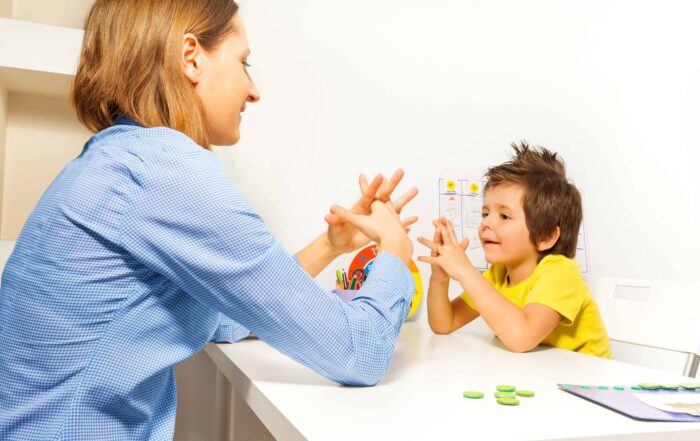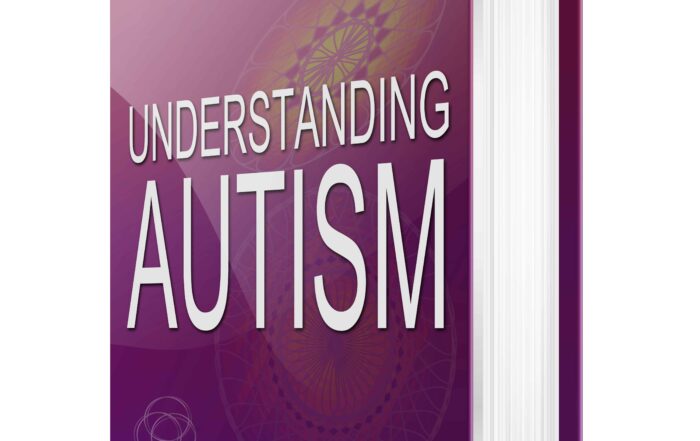Children with autism usually have some sleep pattern problems. Some “go till they drop,” then sleep very soundly all night, and are difficult to get started in the morning. Others have great difficulty getting to sleep and may wake often, or be very restless, winding themselves up in the covers, or even ending up on the floor.
The child who gets a restful night of sleep will be less hyper-irritable in the morning. The “go till you drop” child will be easier to awaken in the morning and is likely to be in a better mood if he can get to bed and to sleep before the stage of complete exhaustion.
No single suggestion will work for all children, but here are some strategies that have proven effective in many cases.
Limit Electronics
It is wise to eliminate television (and computers) for one to two hours before bedtime, as the programs children like are often over-stimulating. If the family has a video player, this may be made more palatable by showing the “essential” program for viewing at another time.
Wind-Down Before Bedtime
Rough or rowdy play should be eliminated for one to two hours before bedtime; no tickling, wrestling, etc.
Quiet activities such as drawing, looking at books, or playing with puzzles or construction sets are more suitable activities for a period before bed.
Use Soothing Sensory Experiences for Relaxation
If a bath or shower is an evening activity, follow with five minutes of a towel “rub-down,” being sure to use downward strokes in the direction the hair grows. A rub-down with lotion may be used to add to the length of this activity. Pressure touch is calming.
After the child is in bed, a back-rub may also be soothing. Again, be sure to start with the neck and go down to the base of the spine. Use slow, rhythmic strokes; when one hand is at the base on the spine, start at the back of the neck with the other hand.
Using a soft musical background may help some children to relax and drift off to sleep. It is important to choose the music carefully. It should have a definite predictable rhythm (not too much syncopation). Orchestral music is preferred to singing, in general.
Reading to the child once he is in bed may be calming. Reading poetry with strong rhythm and rhyme is usually more effective than stories.
Because pressure touch and neutral warmth (the body’s heat retained) are both calming, a sleeping bag may promote calm, restful sleep. A “mummy bag” which fits closely around the body is preferable to a loose one. These are easily constructed. If the parent “sells” this as “the way cowboys sleep” or “the way astronauts sleep,” it will probably be accepted.
Final Thoughts
Remember, the child on the autism spectrum uses tremendous amounts of energy and needs more sleep than the quiet child. Many seven- and eight-year-olds will operate better on 10 to 12 hours of sleep than on lesser amounts.
Parents, remember, the time you invest in promoting sleep now will save you many, many hours in the long run and you won’t have to do it forever. Once the patterns are established, you will be able to reclaim a large part of your evening for yourselves.
The late Lorna Jean King was the founder of the Children’s Center for Neurodevelopmental Studies in Phoenix, Arizona.
Autism and Sleep – Research Updates
Learn research updates on co-occurring sleep disturbances and autism. To participate in the study mentioned in the presentation, see: Participate in our Research - Sleep, Cognition and Neuropsychiatry (SCAN)
Editorial – Addressing delays: proactive parent-led interventions during waiting periods
The wait for an autism diagnosis and subsequent intervention can be highly stressful for many families, especially when access to needed health and educational services also hinges on the approval of
Sleep problems in infancy associated with ASD, autism traits, and social attention alterations
A new study from the United Kingdom indicates that sleep problems in infancy may help to predict later social skills deficits, autism traits, and autism diagnoses in children. Jannath Begum-Ali and
Earlier intervention leads to greater benefits for kids with autism
Children with autism spectrum disorders (ASD) who receive intensive early intervention at the age of 18 months fare significantly better than those who begin receiving this type of intervention at 27
Could treating moms’ periodontal disease lower odds of autism?
Mothers who receive periodontal treatment during pregnancy may reduce the odds of their children developing autism spectrum disorders (ASD), according to a new study. Carl Bose and colleagues collected data on 306
Understanding and Treating Autism: Book Series
A new book, titled Understanding and Treating Sleep Disturbances in Autism, is now available from Jessica Kingsley Publishers. The book is edited by ARI's executive director, Stephen M. Edelson, and past ARI







